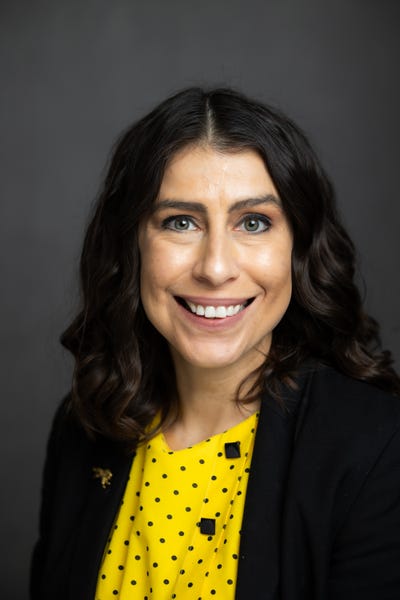The 'Magic' of Responding to Incorrect Media Coverage
Dr. Paul Offit asks, "Do You Believe in Magic?" in the title of his new book that disparages alternative medicine, including supplements. I've read too many studies on the health benefits of supplements to say they are "magic," but if there's one thing that Dr. Offit's book has renewed my faith in, it's media hype.
In Dr. Offit's new book, he chose to look at a number of studies that show high doses of particular nutrients, such as vitamin C, vitamin A, beta carotene and selenium, were linked to negative effects. Since his book was published last month, book reviews and interviews with the author have been in major publications, such as USA Today ("Book raises alarms about alternative medicine"), New York Times ("Mind Over Matter: Debunking Alternative Medicines" and the Huffington Post ("Dr. Paul Offit: Vitamins Could Increase Risk Of Heart Disease, Cancer"). The Atlantic posted an excerpt of the book as well ("The Vitamin Myth: Why We Think We Need Supplements").
Unfortunately, many media outlets took the opportunity to say the dietary supplement industry isn't regulated, which any company working to meet good manufacturing practices (GMPs) or struggling with new dietary ingredient (NDI) requirements knows isn't true.
I get it. Most writers and editors aren't experts about supplement regulations. And I know how much pressure is put on them to produce a lot of content quickly. If a doctor comes in with a book and says FDA doesnt regulate supplements, writers and editors are likely to believe him, and report those as facts.
That puts responsibility on those who are experts to comment on articles and send letters to publications pointing out mistakes.
The American Herbal Products Association (AHPA) did just that; it reached out media outlets that reported falsehoods in articles focused on Dr. Offit's new book. The organization sent letters to editors to correct articles with inaccurate information portraying the herbal products industry as "loosely regulated" and trying to skirt the laws that are in place.
So far, the campaign has worked for one news outlet. In response to a letter AHPA president Michael McGuffin sent to the Los Angeles Times, the newspaper corrected several errors published in a July 6 Op/Ed, "Alluring but risky medicine" written by Offit.
The Los Angeles Times acknowledged it incorrectly:
identified the Dietary Supplement Health and Education Act of 1994 (DSHEA) as the Dietary Supplement and Health Education Law
said FDA does not regulate dietary supplements
stated 170 supplements have documented safety tests. In truth, 170 supplements have submitted safety documentation to the FDA under the new dietary ingredient (NDI) notification regulation.
said the American Association of Poison Control Centers' reported 1.3 million adverse reactions to vitamins, minerals and dietary supplements were reported between 1983 and 2004. The 1.3 million events were actually "exposures," not adverse events.
The July 9, 2013, letter McGuffin sent the Los Angeles Times, called the notion that supplements aren't regulated "absolutely false." He said supplement companies must comply with many federal regulations, such as facility registration, GMPs, labeling requirements and serious adverse event reporting (AER). He added FDA has the authority to initiate criminal prosecution against any company making or selling adulterated or misbranded products.
"The fact that this is an Op/Ed piece shouldn't prevent you from performing the minimum level of due diligence needed to prevent the errors contained in this article," McGuffin wrote.
Haley Chitty, director of communications at AHPA, said the organization's mission is to promote the responsible commerce of herbal products, and letting news outlets know of inaccurate reporting is a part of this objective. "Eliminating misconceptions and inaccuracies about how supplements are regulated is an important part of that mission, and helps improve public discourse about supplements, which can lead to more informed consumers," he said,
Chitty said AHPA expects more corrects to be issue following articles that reported on Offit's book, but it has also seen a positive effect in some media reports. He said some news organizations have change their talking points so they are more accurate. "Instead of saying the supplement industry is unregulated, for example, some media outlets now say that critics of the industry claim supplements are under-regulated."
Yes, one could argue that FDA doesn't regulate the supplement industry enough, but the statement that industry isn't regulated is wrong.
While Chitty said AHPA will continue to monitor media coverage and respond as appropriate, it's not only the trade organizations that can help this cause. Supplement companies can also reach out to editors and reporters to correct inaccuracies.
As an editor who sometimes gets those types of emails, let me suggest that you do it respectfully. Acknowledge the appreciation for their coverage of supplements and let them know where their statements are mistaken. It also helps if you can provide links or attachments to back your statements. If you make yourself a nice, knowledgeable exert with resources, those editors may reach out to you next time when they are covering the supplement industry.
About the Author
You May Also Like

